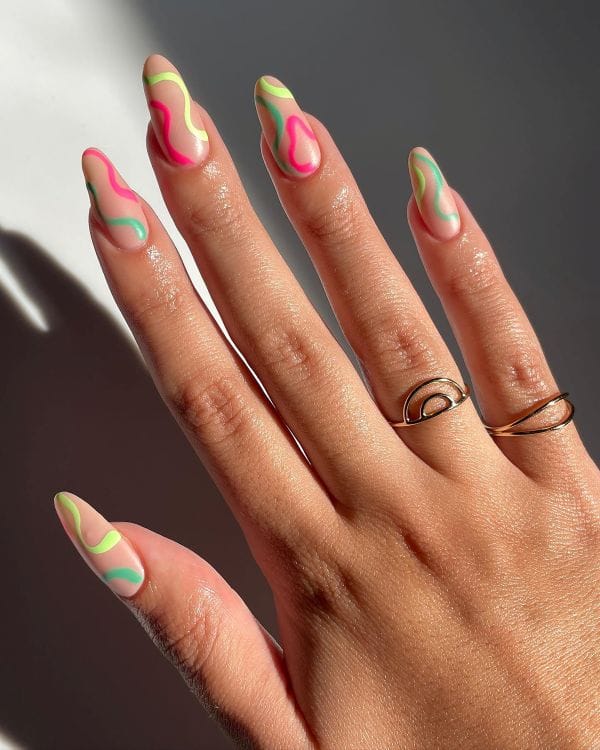This is an archived article and the information in the story may be outdated. Please check the time stamp on the story to see when it was updated last.
Our skin is constantly exposed to elements and circumstances that can cause aging and overall unwanted inflammation. Whether these factor are external (like the sun), or internal (like our body stopping the production of collagen), there’s only so much control we can account for when making our skin a top priority.
But! What if we told you, by implementing routine practices into our everyday health and nutrition, we could benefit our skin? Our skin relies on certain vitamins and minerals to keep elastic and reduce any onset inflammation – making us look younger and healthier. We spoke with Dr. Gretchen Frieling, Board-Certified Dermatopathologist, about the four essential vitamins she recommends introducing into your routine to benefit your skin health. Read on to learn how easy it could be to take your skin health into your own hands.


1. Vitamin C
Here’s why: When reading the ingredients list on your favorite skincare products, we may be surprised to see how often vitmain C is used as a prime ingredient. According to Dr. Frieling, "Vitamin C is present in both the epidermis and dermis, and it is an antioxidant agent. Vitamin C is also an essential part of collagen synthesis. Collagen is the most abundant protein in the body, and it is responsible for providing the skin with its structure." Additionally, many studies have shown that Vitamin C fights inflammation throughout the body - making your skin appear younger!
How to best consume: Along with taking a supplement or vitmain capsule, "vitamin C is present in many fruits and vegetables such as kale, broccoli, oranges, kiwi, and papaya," says Dr. Frieling. "You really have a large variety of delicious ways to include more vitamin C in your diet. If for some reason, you just don’t have the time or the bandwidth to eat more fruit or veggies throughout the day, many doctors and health professionals are fans of emergen-c packets in the morning."
2. Curcumin
Here’s why: "Studies show that curcumin helps suppress harmful free radicals in the skin; it speeds up the healing of wounds by improving collagen’s role in repairing damage," says Dr. Frieling. While not as well known and spread throughout the beauty community as it pertains to skin health, curcumin has also been found to aid the management of oxidation and inflammation throughout the body (including the face).
How to best consume: Aside from capsule or supplement form, the most common way to cosnume curcumin is through the spice Tumeric. For those who love different Asian cuisines, you're in luck! Tumeric is one of the substances that give many Indian, Indonesian, and Thai dishes their delicious golden color palette. If Asian food isn't for you, many consume the drink Golden Milk, which is a mixture of tumeric and milk (or non-dairy options like almond milk).

3. Vitamin A
Here’s why: "Our skin needs vitamin A to look and function at its best," says Dr. Frieling. "Skin is retinoid-responsive, and that term may sound familiar, seeing as retinol products have become increasingly popular within beauty brands for their effectiveness in boosting collagen production, helping to restore firmness to the skin and reduces fine lines. Retinol is a preform of vitamin A. Vitamin A is also an effective anti-inflammatory agent."
How to best consume: In addition to the vitamin supplement and capsule form, vitamin A can be consumed from both plant and animal products. If looking to buy supplements, Dr. Frieling says the associating vitamin A capsules may come in the form of retinyl acetate or retinyl palmitate or a combination of preform and provitamin A. "If you already take a multivitamin, you can check to see how much vitamin A content is included within your existing regimen. Vitamin A suggested intake differs among age groups, and the amount differs for women who are pregnant or nursing."
4. Zinc
Here’s why: You may have read many skin experts recommend sunscreen with mineral components like zinc. Reason being, according to Dr. Frieling, is because "zinc is great for protecting the skin from the harmful rays of the sun both when included in sunscreen and when ingested through food or supplements. This is important to the overall health of the skin." Did you know, that zinc is largely present in the outer layer of the skin, and plays a role in helping reduce signs of scarring (an inflammatory response) and acne. "Zinc has well-documented anti-inflammatory capabilities and its role in the process of wound healing in the skin," says Dr. Frieling.
How to best consume: Zinc is present in many healthy foods (meats, dairy, and vegatables), it is a nutrient that should be easy to obtain in the body. However, because of the increased number in unhealthy foods in our diet, our body's access to zinc in decreasing. Dr. Frieling recommends speaking to your skin physician or internist if you feel like you may be low on zinc. They'll discuss with you, the best zinc supplements to incorporate into your diet.


























